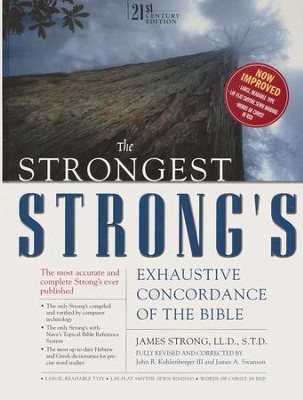**Some of the links below are affiliate links*, meaning, at no additional cost to you, I will earn a commission if you click through and make a purchase. Read my full disclosure here.**
We talk a lot around here about how to get the most out of–and put the most in to–your devoted time. Devoted time is the intentional time you set aside on the regular to be in relationship with the Lord, to talk with him, hear from him, to love on him and be loved by him.
There are a ton of ways to spend this time, a lot of different ways you can do this (and if you’re looking for some new ways, totally check out my #10daydevotedchallenge 😉 but one of the main ways we connect with God is through reading his word, the Bible.
The Bible can be completely overwhelming. It’s a big book and there is a lot of confusing stuff in there. Reading cover to cover or through the Bible chronologically is one way to tackle it, and there are a ton of plans out there to help with that. But what if there is a particular word, topic, or person you want to study? How do you go about that?
That’s what I hope you help you with today.
What is a topical Bible study?
Think of studying the Bible by topic as a big scavenger hunt. You have this one word or person or topic and you want to know what the Bible has to say about that.
Topical studies allow you to unearth what is said about that particular thing through all of Scripture–all 66 books, Old and New Testament.
Now, topic is a broad, well, topic, and there are other more specific things that fit under a topical study such as word studies–where you track a particular word, it’s meaning, and usage–and character studies, which are studies of a particular person in Scripture.
Studying the Bible by topic has the opportunity to be a very rich and rewarding to approach God’s word because it gives you a fuller understanding of what God says about a particular thing.
How to do a topical study
Sounds great, right? But how do you actually go about doing a topical study?
1. Identify your topic. This could be a word or person you’ve been wondering about or something you’re trying to figure out in your own life and get some answers on. Narrow it down to one thing at a time and start there.
2. Pray. Always pray when you dive into God’s word. It doesn’t have be long and drawn out or super serious. Just remember that this book is God’s word. He knows what’s inside, he knows what you need to read/hear at this particular moment, and his Spirit can help you understand it. Though I’m sticking prayer here as a definite beginning step, it’s a good idea to be in conversation with God throughout your study.

3. Look up your topic. Most Bibles have an abridged concordance in the very back to help you get started. A concordance is kind of like a dictionary except, instead of defining the word, it lists out all the passages where that word is found. Write down the passages listed with your topic so you can look them up. You can also use search tools like BibleGateway or the YouVersion app to search for all the occurrences of a particular word, name, or phrase.
4. Read the passages and observe what is said. Once you’ve got your list of passages, start looking them up. Depending on the topic you are studying, this may take some time, and that’s okay. The point here isn’t to rush through. As you read, it might be helpful to have a journal or some way to take notes, that way you can track what you read on that topic. Write down key phrases, verses, or summarize the passages. Don’t draw any conclusions yet, just make some observations.
5. Make conclusions and apply what you’ve learned. Once you’ve looked up all your passages and taken notes, look back over what you’ve written. It’s time to draw some conclusions. What is God teaching you about this topic? Is there anything he is asking you to change or do based on what you read? What are you walking away from this study with? What do these passages teach you about God or reveal about yourself?
6. Share what you’ve learned. Find a friend, write up a post for social media, speak up in small group. Sharing will help you continue to solidify what you learned, and, who knows, what you share might actually help or encourage the person you are sharing with. Don’t force yourself to share, but instead ask God for an opportunity to chat with someone about what you–and they–have been learning from Scripture lately.
Resources to help with a topical study
If you need a little more help or guidance in your topical study, here are a few great resources:

I’ve got a free resource library right here on my website where you’ll find Bible study guides and reading plans. The Character Study and Word Study guides were designed to guide you through your own topical studies. You can get access to the library and start downloading those resources here.
Both are great, not only for searching for passages where your topic is talked about, but you’ll find more help here too. BibleGateway has a topical index under their study tools. Just type in the word or topic and it will direct you to related topics and references. YouVersion has numerous Bible studies on particular topics if you want someone to guide you through a study on a particular topic.
 Daily Truth Scripture Mediation from Daily Grace Co.*
Daily Truth Scripture Mediation from Daily Grace Co.*
This handy little book is organized by topic and includes a list of references for where the Bible talks about those topics. Everything from anger and fear to joy and contentment, this is a great starting point for topical study. And it’s handy to keep around for those days where you need a pick-me-up and aren’t sure where to go in Scripture.

Write the Word Journals from Cultivate What Matters*
Depending on the topic you choose, you might find these journals helpful for extended study. Each journal focuses around a particular topic: hope, faith, gratitude, forgiveness, joy, renewal, prayer. Each entry provides you with a passage on that topic and space to write it out and then journal your thoughts about it. I’ve been working through the prayer one lately and love it.
I mentioned these earlier, but I wanted to direct you to a few specific ones you may find beneficial to add to your personal library. You’ll need to find one that uses the same translation you use for you Bible, but Strong’s is the most popular. If you use the NIV translation or ESV translations, they have their own concordance as well.



Community question: What topic would you like to do a study on?
Related: 5 Great Tools for Daily Bible Study
Live in his love!




Thanks Jazmin! All very helpful!
Thank you; I can’t wait to feast myself with the word of God
You are so helping. And may you continue in that strong grace in the Lord Jesus Christ. Surely you are salt that hasn’t lost it’s flavor. I just say thank you and be blessed.
This site is a blessing! Thank you for this information. ???✨
Thanks